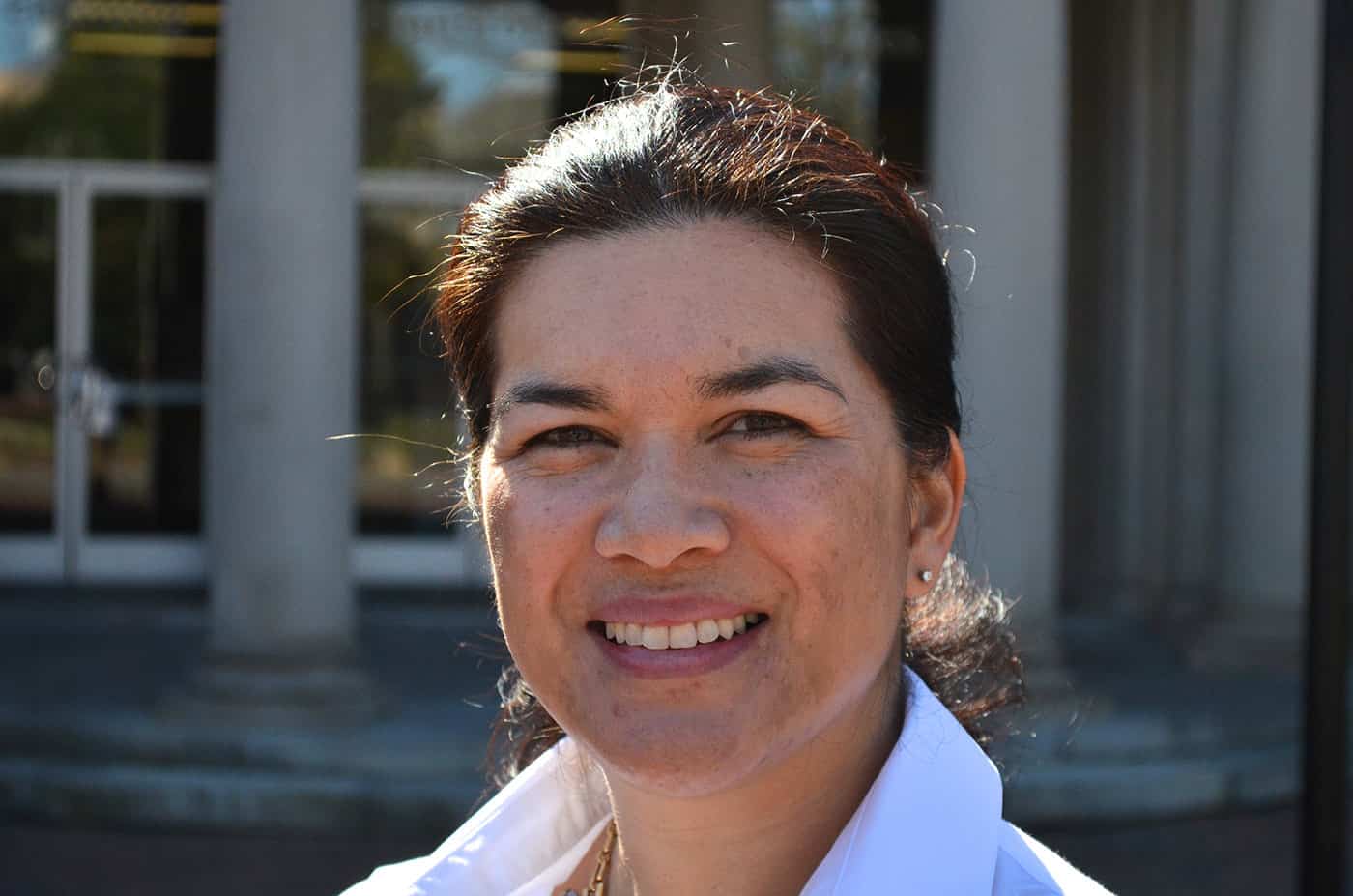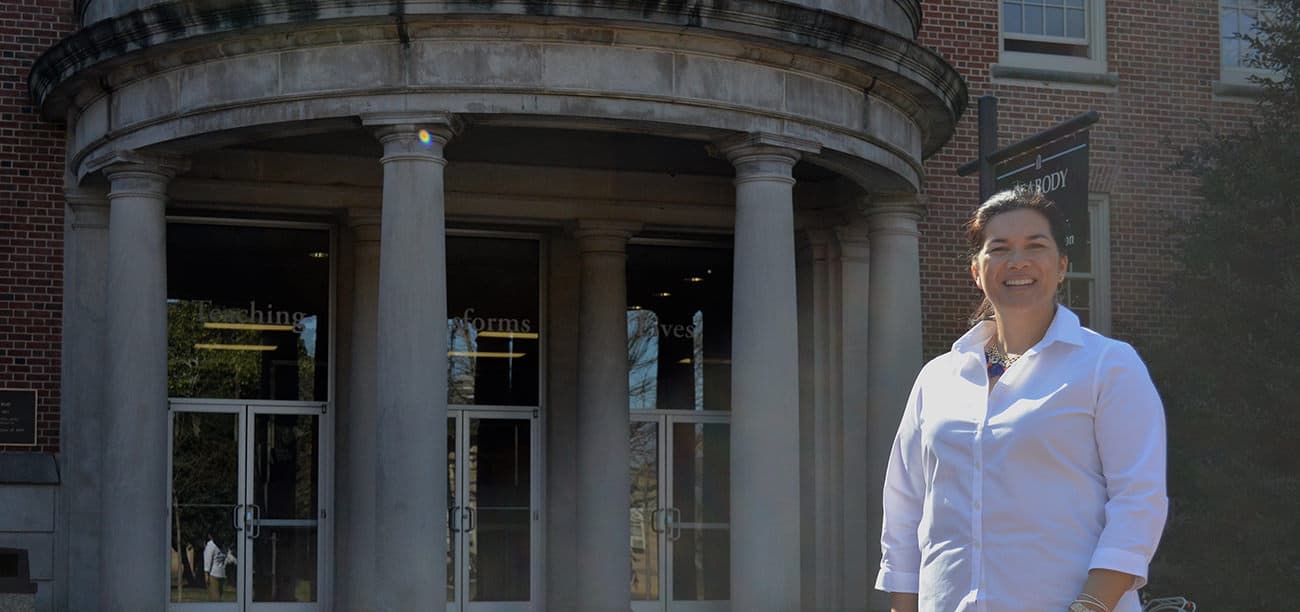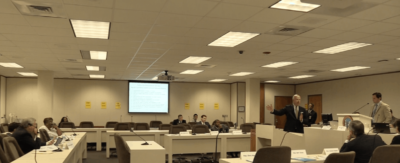Editor’s Note: The University of North Carolina Academic and University Programs Division releases its annual report this week. Great Teachers and School Leaders Matter surveys the work of the Division and UNC’s fifteen educator preparation programs that are focused on the University’s goal of preparing more, higher quality teachers and school leaders for North Carolina’s public schools. EdNC will be highlighting the report’s profiles of teachers, school leaders, programs, and partnerships from across the state as part of a nine-part series. The full report is available here.
Teachers are nation builders! And they build a nation – our nation – one student, one classroom, and, collectively, one school at a time. Beyond strong families, there is hardly anything more important to the long-term well-being of our communities, our state, and our nation than assuring we have competent, caring, and qualified teachers in our schools. But how are those teachers prepared? And how do we know they are effectively prepared to teach before they are actually licensed to practice in our public schools?
Dr. Diana B. Lys, recently named the assistant dean for program assessment, accreditation, and teacher preparation in the School of Education at the University of North Carolina at Chapel Hill, has an important role in helping to improve the preparation of teachers at the University of North Carolina at Chapel Hill and beyond. She is helping to expand the implementation of a new empirically rigorous way to assess a teacher candidate’s ability to engage in successful teaching practices prior to being recommended for a license to teach using a performance assessment tool called edTPA.
Video: What is edTPA?
Without valid and reliable assessments, teacher preparation programs have little documentation for prospective employers and other stakeholders about their success in preparing strong beginning teachers. Educators and researchers at Stanford University developed edTPA, an assessment “for the profession by the profession.” Over the past several years, Dr. Lys has developed a deep understanding of the tool and the effective implementation of edTPA in teacher preparation programs.
As Dr. Lys explains, “Accountability in higher education is sharpening its focus on teacher preparation programs and their graduates. No longer can teacher preparation programs claim their graduates are well prepared; they must also demonstrate that their graduates can positively impact PK-12 student achievement. The research literature linking PK-12 students’ performance and teacher characteristics is growing as more states connect PK-12 student performance to teacher evaluations and teacher preparation program. There is little argument among educational researchers that a teacher’s preparation and qualifications are the most predictive indicator of student achievement. Until recently, there was no standardized assessment that could be used to measure a teacher candidate’s readiness to become a ‘teacher of record.’ Individual states determine the criteria for teacher licensure. In many states, teacher candidates are required to pass one or more tests to prove their knowledge of basic skills, subject matter, and professional practice. A majority are ‘paper and pencil’ tests that lack a performance component. In 2001, there were more than 600 aforementioned teacher tests in use.”
Video: Why is edTPA better than what came before?
Prior to joining the faculty of UNC-CH, Dr. Lys was a faculty member at East Carolina University serving for five years as the director of assessment and accreditation in the College of Education. As director, Dr. Lys played a pivotal role in the implementation of the edTPA in all initial teacher preparation programs at East Carolina University. Between 2010 and 2015, edTPA implementation grew to include seventeen licensure areas in five colleges across East Carolina University’s campus. Dr. Lys assisted in engaging over 100 faculty members and assessing over 700 new teacher graduates annually.

Three tasks are address by edTPA portfolios – planning, instruction, and assessment. A key component of edTPA assessments are the video clips of classroom teaching in authentic classrooms. Thus, one of the critical lessons Dr. Lys learned and shared from the scale-up and implementation of edTPA at East Carolina University was the need for close coordination, collaboration, and partnership among faculty and PK-12 partners to facilitate video recording. Aligning university and PK-12 faculty to the goals for teacher candidates is essential to the success of edTPA implementation. PK-12 teachers were especially helpful in smoothing implementation issues and supporting improved clinical practice for teacher candidates.
University of North Carolina at Chapel Hill, East Carolina University, and Winston-Salem State University were among the initial institutions to pilot the use of edTPA in North Carolina. Three other institutions, North Carolina State University, University of North Carolina at Charlotte, and Western Carolina University are now implementing edTPA. As Dr. Lys noted, “It is a process not to be rushed, nor mandated from the top down. It is essential for faculty to understand and support the use of edTPA, since it will replace ‘homegrown’ assessments, it will set a clear bar for teacher candidates, and it requires even closer working relationships with PK-12 partners, as mentioned earlier.”
Dr. Lys has been on the forefront of helping others across the state and nation to better understand both the challenges and opportunities in full implementation of edTPA. The “lessons learned” at East Carolina University and University of North Carolina at Chapel Hill have been shared with colleagues in formal venues and informal conversations. In a 2015 conference in Savannah, Georgia, one of East Carolina University’s Elementary Education graduates, Kelly McLees, stole the day when she exclaimed that she tires of hearing the adage, “Those who can do; those who can’t teach!” Kelly noted, “Anyone who has successfully completed edTPA has demonstrated a high level of rigor. Besides, if edTPA was easy, would I really want to be a teacher?”
Video: Why are educator preparation programs so important?
Dr. Lys is ideal for this work. She began her career in education as a middle school science and social studies teacher in rural North Carolina. After eight years in the field she joined the faculty in the College of Education at East Carolina University as a clinical coordinator, making field placements, supervising interns, and collaborating with clinical teachers. She credits these experiences with grounding her approach to working with faculty and PK-12 partners to continuously improve teacher preparation.
Dr. Lys completed her bachelors, masters, and doctoral degrees at the University of North Carolina at Chapel Hill. While her new position is a homecoming of sorts, she is most excited about the opportunity to continue to serve the students and teachers of North Carolina in her new role.
Great Teachers and School Leaders Matter Series
Part 1: Introduction
Part 2: Katie B. Morris
Part 3: Yolanda Black
Part 4: Jeff Vamvakias
Part 5: New Teacher Support Program
Part 6: Diana B. Lys
Part 7: Steve Lassiter
Part 8: Chase Schultz





